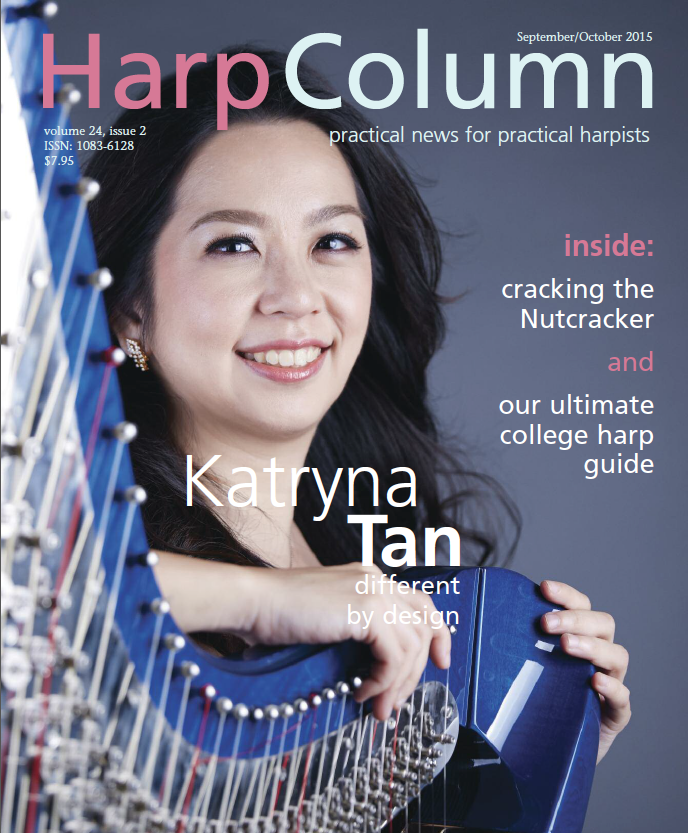—by Inge Wiekenkamp

I am a scientist. Unraveling and understanding the hidden functions of the environment is one of my great passions, and I have the luxury of being paid for it. I’ve had the opportunity to travel, work, and be united with nature in some of the most beautiful areas of our planet. I caught and monitored snakes and other reptiles in South Africa, worked on the protection of a crater lake in Nicaragua, studied part of my master’s program in Berlin, and did field work in high-altitude pine forests in Tenerife.
My work is difficult and time-consuming. Research keeps me occupied, even after working hours. Sometimes I catch myself solving an equation while searching for my favorite cheese in the supermarket. I often wondered how to stop this train of thoughts that circulated in my head. I needed a way to relax my brain and release these thoughts. So I turned to the harp, or maybe I should say I returned to the harp.
My relationship with the harp dates back much farther than my relationship with science. When I was 8, I fell in love with the sound of the harp at a small local music school in the Netherlands. Like most kids, I enjoyed Disney movies and hearing the song “Tale as Old as Time” from Beauty and the Beast on the harp enchanted me. As a young girl I dreamed of becoming a harpist. I practiced a lot and at age 14 entered a student program for exceptionally gifted musicians at the Conservatory of Amsterdam. For two years I tried to catch up with the best, only to end up with more stress than joy for the harp. I began to realize the reality of how difficult it would be to attain a traditional solo career, and I did not see myself as a harp teacher. I decided to let go of my childhood dream of becoming a harpist and go in a different direction.
Even after this turning point, I never actually let go of the harp. I always felt that the harp was part of my personality. It is a part of who I am, which will never leave me no matter where my life takes me.
All through my harp studies, I took different classes with wonderful teachers, trying to recreate the original beauty I saw in the instrument. Only recently I discovered my magical connection to the instrument through improvisation and singing.
As soon as I start creating music, thoughts on equations and measurements get lost. I mostly play music I am familiar with or improvise. This way, I do not have to stress my body after work by practicing complex pieces. I would rather focus on a simple chord progression that is the only thing I need to remember. Suddenly, there is only a flow I have to keep and I can enjoy my own music from a distance. This meditative spirit removes stress and creates this amazing feeling of well-being. After relaxing with the harp, it is often much easier to focus again on the scientific problem at hand.
The connection between science and harp in my life is only getting stronger. Two things I thought had nothing in common are not just coexisting in my life, they are actually bringing a vibrancy and understanding to one another that did not exist in either one before. Music has formed the creative mindset that I needed in science. And science has given me a way to see more of the world and communicate with others, which I needed in music. Together, harp and hydrology create the ultimate recipe that defines me, and I could not live without either one of them. •





